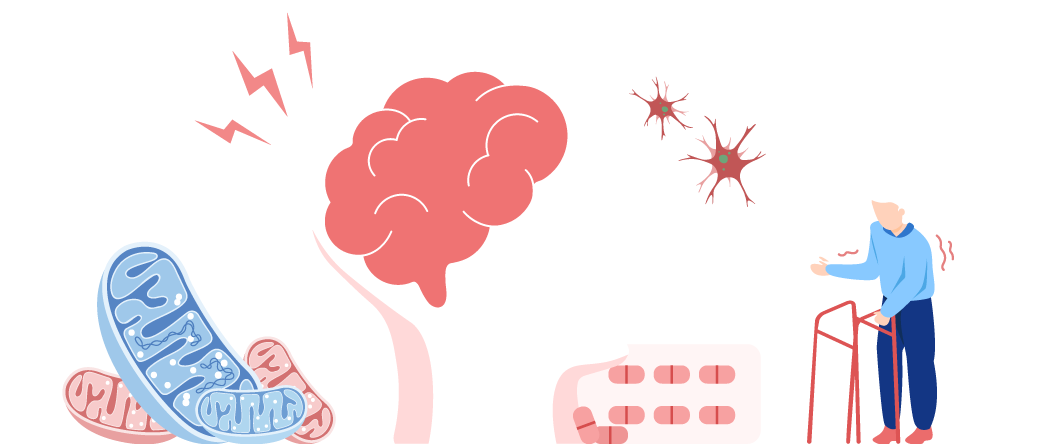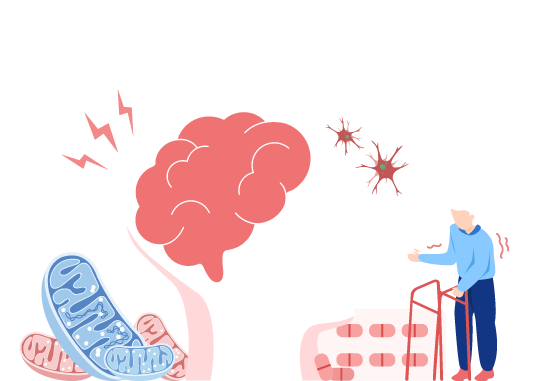Parkinson’s disease is a neurodegenerative disease characterized by gradual decrease of motor function. The progress is slow, and symptoms include bradykinesia, tremors, rigidity,
and postural instability. This is heavily associated with the degeneration of dopaminergic neurons in the substantia nigra.
The three currently known causes of this are the aggregation of α-synuclein proteins, high levels of ROS-induced inflammation in microglial cells, and mitochondrial dysfunction in neuronal cells.



